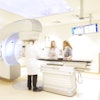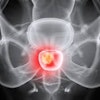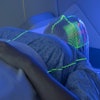ATLANTA - Combining adjuvant hormonal therapy with radiotherapy will significantly reduce the risk of recurrence in patients with early-stage prostate cancer, researchers reported Sunday at the American Society of Clinical Oncology (ASCO) meeting.
Compared with radiotherapy alone, patients treated with the combination of hormone suppression therapy and radiation increased progression were associated with an absolute increase of 10.5% in progression-free survival and an absolute increase of 6.2% in overall survival, according to Paolo Carlini, M.D., of the Regina Elena Cancer Institute in Rome. Dr. Carlini presented the results of seven randomized trials in an ASCO poster presentation.
Moreover, the benefit increased with length of hormone treatment -- patients who received long-term hormone suppression increased progression-free survival by 12% versus a 9.3% increase among patients who received only short-term therapy. But short-term therapy increased overall survival by 5.6% and cancer specific survival by 4% versus 3.8% improvement in overall survival for long-term hormone therapy and 3% improvement in cancer specific survival for men randomized to long-term hormone suppression.
The study included 2,748 patients who received long-term therapy and 1,625 who were randomized to short-term therapy.
In a second trial reported yesterday at ASCO, Lorenzo Cohen, Ph.D., director of the Integrative Medicine Program at the M. D. Anderson Cancer Center in Houston, said that women who take two hour-long yoga classes a week while undergoing radiation therapy for breast cancer have significantly better physical function scores and report better "general health" than women who were randomized to a "wait list" for the intervention.
Women were randomly assigned to a Hatha yoga program, which focuses instruction on breathing and loosening exercises, including alternate nostril breathing, deep relaxation techniques, postures, and meditation, Cohen said. They attended the classes during six weeks of radiation, which followed chemotherapy and surgery for treatment of stage 0-III breast cancer.
Sixty-two women were recruited for the study, and the average age was 52. The majority had stage I or II breast cancer (71%), and 48% had undergone breast conservation surgery and 75% had chemotherapy prior to beginning radiotherapy.
Saliva and blood samples were collected at baseline and after completing six weeks of radiation. "We are assessing cortisol levels in the saliva -- a measure of stress -- as well as cytokine levels in the blood," Cohen said. But he said analysis of those biomarkers is not yet complete.
The women also completed a series of standard questionnaires to assess intrusive thoughts and avoidance behaviors (Impact of Events Scale or IES), depressive symptoms (CES-D), sleep disturbances (Pittsburgh Sleep Quality Index), fatigue (BFI), and qualify of life (SF-36) at baseline, one week, and three months, he said.
The yoga group had "significantly better physical function scores (average 82 versus 69 for controls, p < 0.01) and significantly better general health scores (78 versus 68, p < 0.03), but only marginally better social functioning scores," Cohen said. They were also less likely to report sleep disturbances.
"There was no significant difference in depression, but that may reflect the timing of the intervention. These women had already gone through chemotherapy and surgery. Radiation was the final phase of their treatment so they may have been more optimistic," he said.
Dr. Cohen said M. D. Anderson is now going forward with a much larger study with 150 women who will be randomized to yoga, a simple class in stretching exercises, or a wait list to determine if it is yoga that is beneficial or "if the benefit is related to a simple physical intervention."
By Peggy Peck
AuntMinnie.com contributing writer
June 5, 2006
Related Reading
Modern cryotherapy an option for primary and recurrent prostate cancer, June 1, 2006
Low-grade prostate cancer may not require aggressive treatment, May 26, 2006
CEUS shows promise for monitoring prostate ablation, May 24, 2006
International imaging research explores yoga benefits for cancer patients, June 3, 2005
Strike a pose: PET sheds light on benefits of yoga, December 31, 2002
Copyright © 2006 AuntMinnie.com



















